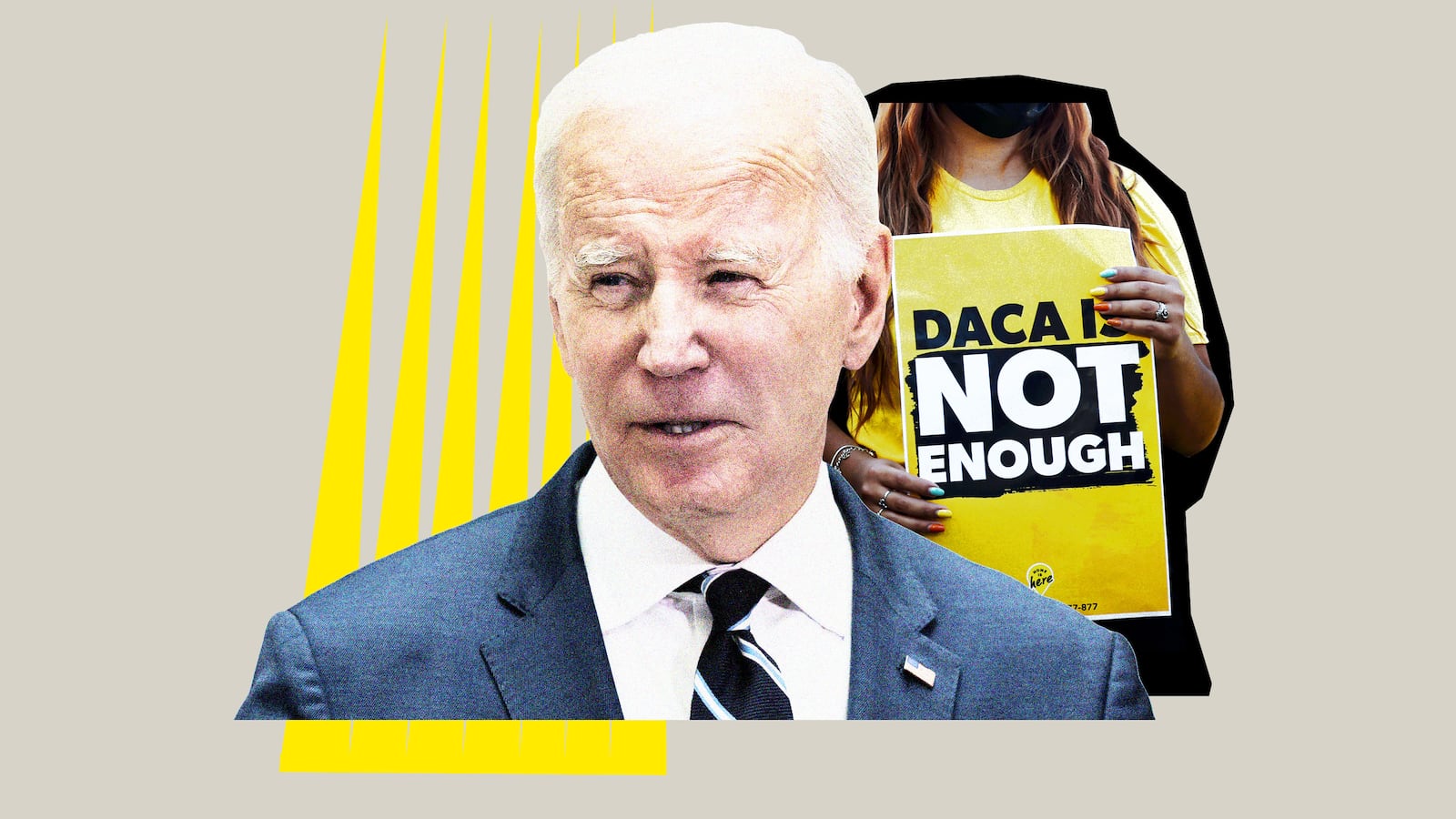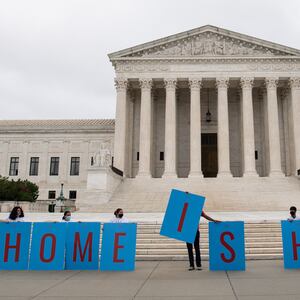San Diego, CA — When I think of Deferred Action for Childhood Arrivals (DACA)—and what inspired the program more than a decade ago, namely the sketchy legal status of Dreamers (undocumented young people who came to the United States as children)—my mind goes to seesaws.
DACA participants get a renewable two-year visa that lets them work without fear of deportation and travel abroad knowing that they can return home to the only country they have ever known. This one.
Yet there are strings. To participate, individuals had to have entered the United States before they turned 16 years old and be under the age of 31 as of the program’s start date of June 15, 2012. They also had to turn themselves into law enforcement, get fingerprinted and photographed, and give their home address to the U.S. government.
This is the same entity that maintains a multi-billion dollar operation intended to detect, detain, and deport people like them. That is the action that is being “deferred.”
On one end of the seesaw is the vast array of accommodations that Americans might afford an estimated 580,000 DACA recipients to make their lives in the United States more comfortable, more livable and more equitable. Those accommodations range from driver’s licenses to money for college to the ability to open bank accounts.
On the other end is something that doesn’t often get mentioned when discussing DACA—the security and welfare of the estimated 10-15 million undocumented immigrants in the United States who do not qualify for the program. What happens to them depends on the tone of the immigration debate and how fed up Americans get with having to do right by people who shouldn’t be here in the first place.
Of course, undocumented immigrants are here. And, take it from someone who has written about immigration for more than 30 years, the U.S. economy couldn’t survive without them—especially now that so many Americans have, in the aftermath of the COVID-19 pandemic, decided they don’t want to work anymore.
When one side of the seesaw goes down, the other goes up. Every time, we try to better the lives of DACA recipients, we risk aggravating the situation for other undocumented immigrants—a cohort that includes their parents, friends and siblings. DACA recipients are sympathetic, and sending them off in the lifeboat makes it less likely that the rest of the undocumented population will ever be saved.
In September 2017, President Donald Trump announced that he was ending DACA and gave Congress six months to devise a better plan. Three years later, the Supreme Court rebuked Trump and saved the program for existing participants. New applications are not accepted.
Now the Biden administration is preparing another giveaway to DACA recipients. Currently, they’re prohibited from receiving any kind of federal benefit such as food stamps or Social Security. The administration is proposing a rule change that would those covered by DACA to get health insurance through Medicaid and the Affordable Care Act. The change appears to be coming from the Health and Human Services Department, which wants to expand eligibility for the programs based on who has “lawful presence” in the United States.
That makes sense. The entire idea behind DACA was to ensure that the presence of recipients in this country was “lawful.”
The White House is enthusiastically onboard, saying in a recent statement: “We recognize that every day counts, and we expect to get the proposed rule done by the end of the month.”
As someone who used to support DACA but gradually came to oppose it because it seems like a trap that puts recipients in peril, I have mixed feelings about these recent developments.
For one thing, these incremental accommodations can be dangerous. They make Americans comfortable with a flawed program that was always little more than a Band-Aid on a bullet wound.
Let’s remember that DACA was bestowed upon us by an individual—former President Barack Obama—whose atrocious record on immigration was marked by broken promises to push for immigration reform, record numbers of deportation, and the caging of Central Americans refugee kids at the U.S.-Mexico border. DACA was never going to be enough to atone for those sins.
Moreover, one of the problems with getting 500,000 DACA recipients additional "opportunities" (rights, benefits, freebies) is that it takes pressure off Congress and the White House to come up with a permanent fix for millions of other undocumented immigrants.
That’s the undocumented really need: a permanent remedy to their legal status. And despite what President Joe Biden said in a tweet this week in announcing the plan to allow DACA recipients to get health-care insurance about how the administration is “not done fighting” for a path to U.S. citizenship, we’re not getting any closer. Biden is lying. His administration hasn’t pushed for immigration reform at all. It drew out on a plan on a cocktail mat in the first days of the administration, in early 2021, and then dropped it off in Congress like a someone abandoning a baby at a fire station.
The truth is that U.S. citizenship is a non-starter, and immigration reform has been off the agenda at the White House since former President George W. Bush exited in January 2009.
Finally, perhaps the biggest problem with the DACA program is that its constituency is too narrow. It was designed by the Obama administration to be elitist and exclusionary and protect those college students, or college graduates, who are most assimilated and most unlike their working-class parents. Americans are only interested in helping people who look and sound and think like us. And that’s DACA recipients—the most Americanized immigrants of the bunch.
As DACA limps toward its 15th anniversary in 2017, Americans are back where we started. A proposal to give recipients access to health insurance is irrelevant to the much more important question: What do we do with the millions of undocumented immigrants who we keep in the shadows even though they help keep this country afloat.
That’s the riddle we should be focused on solving, not handing out more accommodations for the chosen few.






